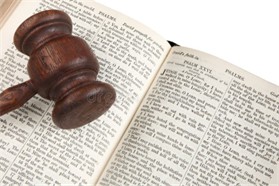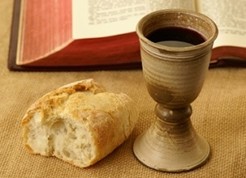CHURCH DISCIPLINE

The Constitution of True Life Bible-Presbyterian Church, Article 8.5, states: “If any member is found by the Board of Elders to have acted in a manner unbecoming of a member or by his act or omission is likely to hinder the witness of the Church or render it of ill repute, the Board of Elders shall request him to appear before the Board. The Board of Elders shall have the power to admonish, rebuke, suspend, depose or excommunicate the member either in accordance with the procedure laid down in the Bible-Presbyterian Book of Discipline or other procedure as modified or adapted by the Board.”
Here is a summary of The Book of Discipline, published by the General Synod of the Bible Presbyterian Church (USA), 1989:
I: The Nature and Purpose
of Discipline
Discipline is the authority Jesus Christ gave to the Church to keep it pure and orderly. Discipline can be judicial or administrative. Judicial discipline deals with offences—wrong beliefs or behaviour—and aims to defend Christ’s honour, keep the Church pure, and restore the offender. Administrative discipline ensures the good order of the Church’s government outside of judicial matters, protecting rights and duties.
Every communicant member is under the care and discipline of the Church.
II: Jurisdiction
Sessions oversee members, elders, and deacons. Presbyteries oversee ministers. If someone is dismissed to another church or presbytery, the original body keeps jurisdiction until the new body formally accepts them. Dismissal certificates must name the receiving body, be sent directly, and the receiving body must confirm when acceptance happens.
III: Beginning Judicial Cases
A judicial process begins only when formal charges are filed, read, and accepted as reasonably supported. Charges must be filed within two years unless unavoidable delays are proven, or if grave heresy is ongoing. Anyone—an injured party, another person, or a court—may bring a charge. Charges must be written, list facts, details (time, place, circumstances), witnesses, and documents.
Offences are either private (known to few) or public (widely known). For private offences, the Matthew 18:15–17 process must be followed before charges are accepted. Complainants are warned they could be censured if they bring false charges. If only allegations are brought, the court must do a preliminary investigation before deciding to proceed with formal charges.
IV: Judicial Trials
At each trial session’s start, the moderator reminds the court to follow God’s Word faithfully. Trials are open to the public, with rare exceptions; heresy trials must always be open.
At the first trial meeting, the charges are read to the accused. A trial date (at least ten days later) is set. The accused is given the chance to name witnesses. Citations should be served personally or sent by registered mail if necessary. If the accused fails to appear, he will be warned and tried in absentia if absent again. Witnesses who refuse to appear can be censured for contempt. The accused may have counsel—a church member in good standing.
At the second session, the accused may raise objections to the process. If trial proceeds, the accused pleads guilty or not guilty. No one may be stopped from quoting Scripture or the Church’s standards. Witnesses testify in the accused’s presence, unless absent after proper citation. After testimony, both sides argue their case.
After hearing from both sides, the court shall deliberate and then announce its decision. If guilty, it proposes a censure, but it must wait to execute judgement until appeals are resolved. A complete record of the trial must be kept and certified, including recordings if used.
V: Evidence Rules
Evidence must be factual, either direct or circumstantial, but circumstantial evidence should be treated cautiously.
Any intelligent, honest person can be a witness, after swearing or affirming to tell the truth before God. The accused can object to irrelevant or improper testimony. To prove a specification, there must be either testimony of two witnesses, or one witness plus documentary evidence. If requested, witnesses about the same event must testify separately.
In court-initiated cases, a prosecutor will present facts fairly but cannot participate in decisions. Court records may be used as evidence. Evidence taken at a distance is reviewed by the court after hearing objections. If new evidence appears after a guilty verdict, a new trial can be granted or handled by a higher court. If new evidence appears during trial, the accused gets at least ten days to respond.
VI: Cases Without Full Process
Self-accusation: If a person confesses an offence to the court, judgement may proceed without the full trial process.
Membership Withdrawal: Members may leave voluntarily by informing the Session. The Session should try to resolve problems first and help transfer to another sound church if needed. If charges are pending, withdrawal must wait until discipline is complete. Members joining another church without formal dismissal or becoming unreachable after two years can be removed from the roll.
Ministers: If a minister leaves the Bible-Presbyterian Church improperly (e.g., joins another denomination or disappears), his name is erased from the roll. Special action is taken if a minister joins a heretical group. Ministers wanting to resign from the ministry must wait one year while the Presbytery counsels them; then, if unchanged, they are removed.
VII: Censure and Restoration
Five Degrees of Censure: (1) Admonition: Gentle warning and call to repentance. (2) Rebuke: Stronger, more serious reproof. (3) Suspension: Temporary exclusion from membership and/or office. (4) Deposition: Permanent removal from office. (5) Excommunication: Full exclusion from the visible Church. If a guilty party does not come for censure, it is imposed in absentia.
Any major discipline (suspension, deposition, or excommunication) must be publicly announced in the offender’s church, with a request for prayer for their repentance.
Suspended persons are to be lovingly encouraged to repent. Restoration is solemn, may happen even after excommunication.
VIII: Appeals
Appeals move a judicial case to a higher court for review. This can be initiated by the accused or the prosecutor.
Records must be transferred to the higher court. If no error is found, the lower court’s decision stands. If error is found, the higher court may reverse, modify, or order a new trial.
IX: Removal of Non-judicial Causes
Higher courts review lower courts’ records yearly for regularity and correctness. The higher court can correct irregularities and admonish lower courts.
A lower court member may lodge a complaint to the higher court. Complaints may be dismissed (lower court stands) or upheld (decision altered or reversed).
X: Protests, Petitions, Memorials,
and Overtures
A court member who disagrees with a decision may formally protest at the time it is announced. This removes personal responsibility for the decision. Reasons must be submitted in appropriate language. The court may respond in the minutes. JK
JOHN CALVIN ON DISCIPLINE AND COMMUNION

John Calvin, in his Institutes of the Christian Religion (Book IV, Chapters 12 & 17), explains why those under church discipline should be barred from Holy Communion. His reasoning is grounded in several key theological and pastoral principles:
- The Lord’s Supper as Sacrament. Calvin viewed the Lord’s Supper as a sacred means of grace, where believers spiritually partake of Christ’s body and blood (1 Cor 10:16). Because of its holiness, it must not be profaned by unworthy participation (1 Cor 11:27–29). Those under discipline are excluded to prevent them from eating and drinking judgement upon themselves.
- Church Discipline as Chastisement. Calvin saw excommunication (i.e. the exclusion from church fellowship and from Holy Communion) as a corrective measure meant to motivate the offender to repent and return in humility (Matt 18:15–17, 1 Cor 11:32).
- Keeping the Purity of the Church. The church, as Christ’s body, must maintain its holiness (1 Cor 5:6–7). Allowing those who persist in unrepentant sin to partake in Communion would compromise the church’s witness and scandalise the gospel (1 Cor 5:1–6).
- The Need to Guard the Table. Calvin emphasised that church leaders have a duty to “fence the Table” by admitting only those walking in faith and repentance. It is the duty of the church to judge those within its fellowship (1 Cor 5:11-13).
- Avoiding Hypocrisy and False Assurance. Permitting unrepentant sinners to partake in Communion would give them false assurance of God’s favour while they remain in rebellion. Calvin saw exclusion as a loving warning of the peril they face.
For Calvin, barring someone under discipline from Communion was not an act of rejection, but a redemptive act meant to lead the sinner back to repentance and restore them to fellowship. Once repentance was evident, the person was to be joyfully readmitted to the Table. JK


